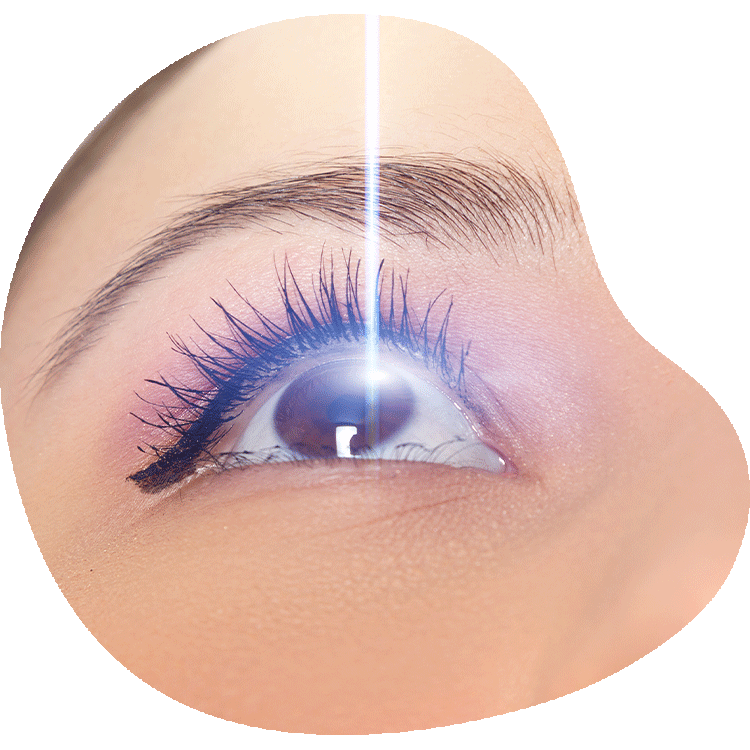Have farsightedness corrected in Turkey
Farsightedness is an eye condition in which a person cannot see clearly objects, especially close ones. Farsightedness is caused by the axis of the eye being too short or the refractive system of the eye (cornea and lens) being too weak, which means that the image of objects does not appear on the retina but “behind the retina”. In order to focus the view, the lens has to be constantly readjusted, which is exhausting and can lead to headaches, burning eyes and concentration problems, especially at night. After the age of 40, the sharpness of the distance vision is lost and then the vision in the distance is no longer sharp.
When looking at nearby objects, the ability to accommodate is even more stressed. What is meant by this is the ability of the eye to focus on different distances. In the case of long-sightedness and the age of over 40, it is often no longer possible to focus on objects. As a result, close objects are not clearly perceived. Glasses that counteract this are glasses that increase accommodation at a distance because they refract the light accordingly.

There are many factors that can cause farsightedness:

Farsightedness can usually be corrected with lenses made to your prescription. The lenses are convex, ie thinner at the edges than in the middle, and their curvature, thickness and weight depend on the severity of the refractive error. A corrective lens ensures that the refracted light is properly focused on the retina so you can see nearby objects clearly. Lens strength can increase with age, so it’s important to get regular eye exams.
Contact lenses work the same way as eyeglasses, but are preferred for aesthetic reasons. For active people, wearing glasses can be a burden, so they prefer contact lenses.
In order to be able to live without glasses and contact lenses, a laser operation makes sense. We can do this at reasonable prices in Turkey. In laser eye surgery, tissue is removed from the edge of the eye to improve the curvature of the cornea. Laser Eye Surgery in Turkey at GetLasik can be a better method since no instruments touch the eye. The procedure is performed exclusively with computer-controlled lasers, reducing the risk of human error and infection.
Laser in situ keratectomy (LASIK) can be perfectly performed by our Turkish ophthalmologists. A flap is cut from the corneal surface and then folded back to allow the laser to reshape the corneal tissue. The flap folds back into its original position and is held in place by natural suction.
The laser procedure is usually performed on an outpatient basis (no overnight stay in the clinic necessary) and can last 30-60 minutes. After the treatment, you will probably come to the clinic one or more times to check if the first procedure was successful and if your eyes are healing properly.

Not everyone is suitable for laser eye surgery, and you may not be suitable for the procedure if you have the following conditions:
All surgeries carry risks, which your surgeon will explain to you before the procedure. The complications listed below, while rare, are among the risks of surgery.